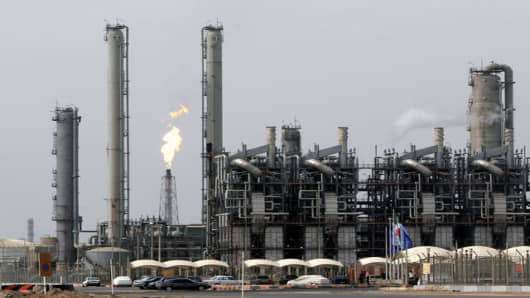A string of bullish factors, including the hurricane risk, falling U.S. stockpiles and only a modest output increase from OPEC, has fuelled the recent hike in oil prices, encouraging non-commercial speculators to increase long positions.
Supplies of crude in the United States fell last week to the lowest level in eight months, while gasoline stocks slid to their lowest in two years.
OPEC Concerns
But OPEC has expressed concerns that turmoil in world financial markets could dent demand for its fuel and hurt U.S. and global economic growth.
Its Secretary General Adbullah al-Badri called oil's surge above $80 a barrel was temporary and unsupported by fundamentals.
The Organization of the Petroleum Exporting Countries agreed a small supply increase on Tuesday. But analysts said OPEC's deal to raise output by 500,000 barrels per day (bpd) from Nov. 1 was not enough to dampen oil's rally.
"Despite OPEC's decision to raise crude output, the market is concerned," said John Waterlow, an analyst at Wood Mackenzie.
But Deutsche Bank analysts sounded a note of caution over the demand outlook. Some economists are pointing to an increased risk of recession in top consumer the United States and China, which on Friday raised interest rates for the fifth time this year to cool inflation.
"Although the oil markets give the impression of significant tightness, recent weekly and monthly data show U.S. oil demand growth rates are anemic at best. If a possible U.S. recession ends up impacting China, the two pillars of oil demand strength would be shaken, in our view," they wrote.
Though oil prices have quadrupled since 2002, when adjusted for inflation, the price is below the $90-a-barrel peaks of the Iranian Revolution in 1979 and the start of the Iran-Iraq War the following year.


